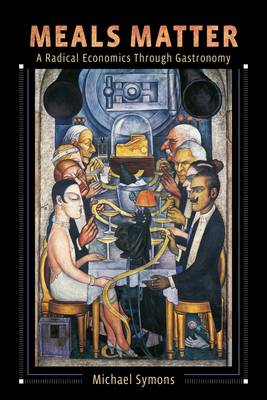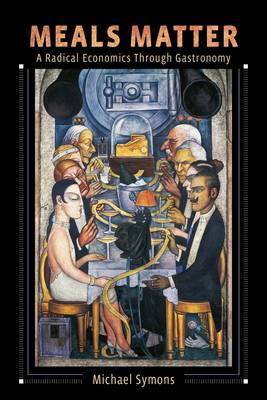
- Retrait gratuit dans votre magasin Club
- 7.000.000 titres dans notre catalogue
- Payer en toute sécurité
- Toujours un magasin près de chez vous
- Retrait gratuit dans votre magasin Club
- 7.000.000 titres dans notre catalogue
- Payer en toute sécurité
- Toujours un magasin près de chez vous
Description
Until the early nineteenth century, political philosophy and economics were dining companions. Both took up fundamental questions of how we should feed one another. But with the rise of corporate capitalism, modern economics lost sight of its primary task and turned away from the complexities of real people's sustenance in favor of the single-minded pursuit of money.
In Meals Matter, Michael Symons returns economics to its roots in the distribution of food and the labor required. Setting the table with vivid descriptions of conviviality, he offers a gastronomic rebuttal to the narrow worldview of mainstream economics. Engaging with a wide variety of thinkers--including Epicurus, Enlightenment philosophers such as Thomas Hobbes and John Locke, the gastronomer Jean Anthelme Brillat-Savarin, and economic theorists from François Quesnay and Adam Smith through the neoliberals--Symons traces how we went astray and how we can find our way back to a more caring, sustainable way of life. He finds hope for shared "table pleasure" in institutions like community gardens, street markets, and banquets and in eating fresh, local, and "slow" food. An innovative, historically based argument at the intersection of food history and social thought, Meals Matter challenges us to reject the economics of greed in favor of a community-based economics of sharing and gastronomic enjoyment.Spécifications
Parties prenantes
- Auteur(s) :
- Editeur:
Contenu
- Nombre de pages :
- 376
- Langue:
- Anglais
- Collection :
Caractéristiques
- EAN:
- 9780231196024
- Date de parution :
- 02-06-20
- Format:
- Livre relié
- Format numérique:
- Genaaid
- Dimensions :
- 157 mm x 231 mm
- Poids :
- 657 g







